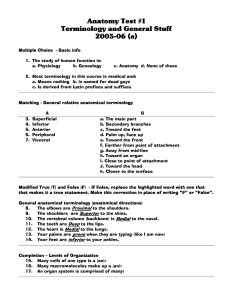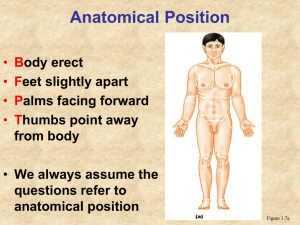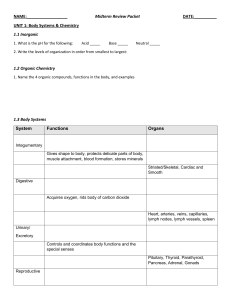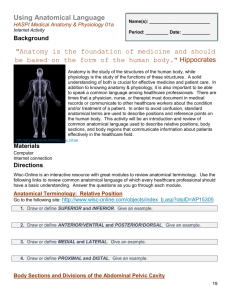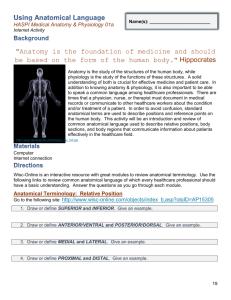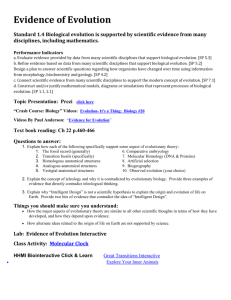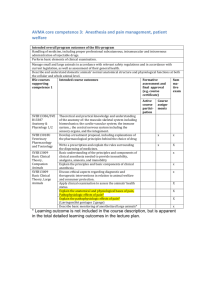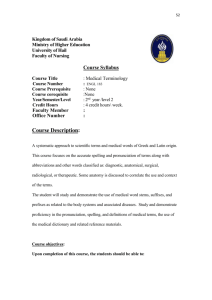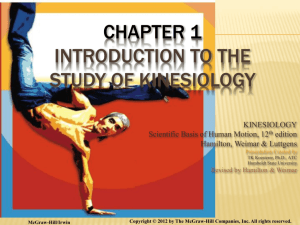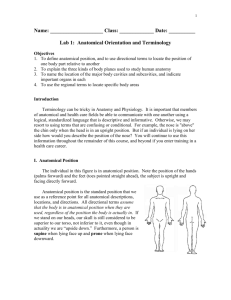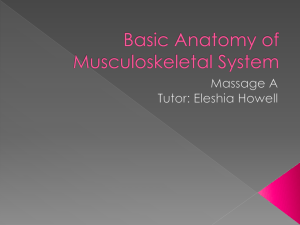Kins 194
advertisement
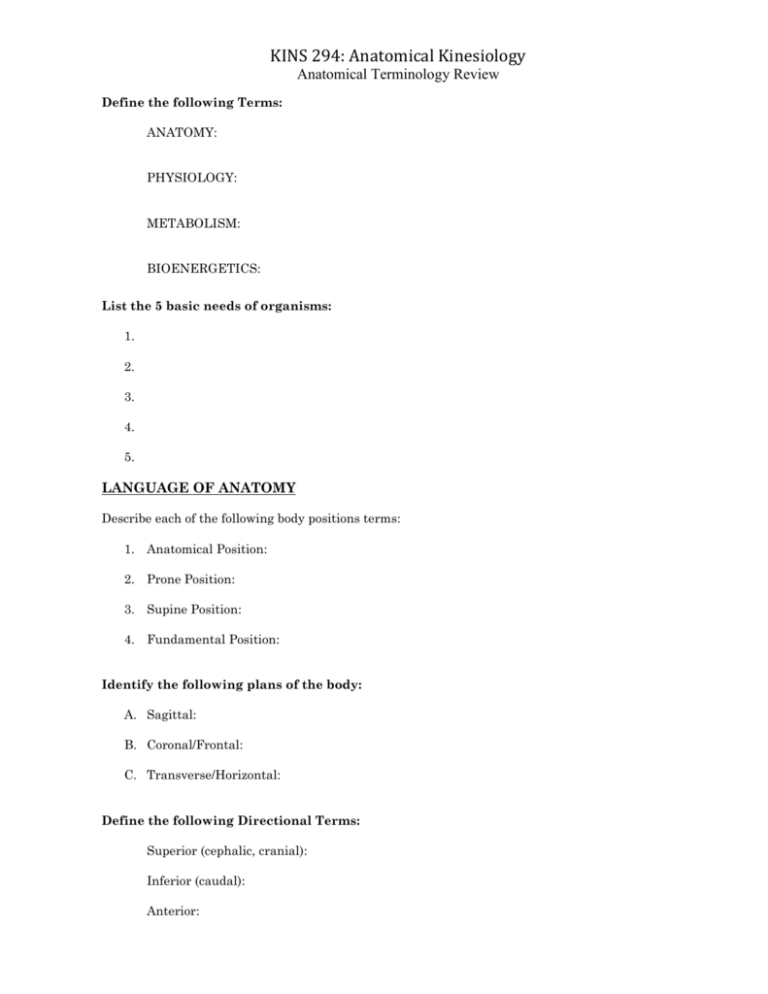
KINS 294: Anatomical Kinesiology Anatomical Terminology Review Define the following Terms: ANATOMY: PHYSIOLOGY: METABOLISM: BIOENERGETICS: List the 5 basic needs of organisms: 1. 2. 3. 4. 5. LANGUAGE OF ANATOMY Describe each of the following body positions terms: 1. Anatomical Position: 2. Prone Position: 3. Supine Position: 4. Fundamental Position: Identify the following plans of the body: A. Sagittal: B. Coronal/Frontal: C. Transverse/Horizontal: Define the following Directional Terms: Superior (cephalic, cranial): Inferior (caudal): Anterior: KINS 294: Anatomical Kinesiology Anatomical Terminology Review Posterior: Medial: Lateral: Define the following Comparison terms: Proximal: Distal: Superficial: Deep: Ipsilateral: Contralateral: Visceral: Parietal: Define the following Terms of Movement: Flexion: Dorsiflexion: Lateral flexion: Extension: Plantar Flexion: Hyperextension: Abduction: Adduction: Protraction: Retraction: Circumduction: Eversion: Inversion: Supination: KINS 294: Anatomical Kinesiology Anatomical Terminology Review Pronation: Supine: Prone: Medial Rotation: Lateral Rotation: Common anatomical Prefixes & Suffixes epi - upon or above rectus - erect or straight a (an) - without, not brevis - short medi - towards the middle sub abd - from (away) capit - head oid - resembling supra - above acro - extremity tip chondro - cartilage infra - below sym, syn - together add - toward, to costal - rib inter - between teres - round arthro - joint delt - delta shaped linea - line trans - across, through aud/aural - ear/hearing profundus - deep rami itis - inflammation - branch /connecting bridge axilla - armpit - under cornu - horn brachial - arm SKELETAL ANATOMY TERMINOLOGY Depressions on the surface of bones provide for the passage of blood vessels and other soft tissue. fovea = pit-like landmark (e.g., fovea capitis of femur) sulcus= (or groove)= a furrow-like opening or groove that accommodates soft tissue such as blood vessels, nerves or tendons. (e.g., intertubercular sulcus of the humerus through which the tendon of the long head of the bicepts brachii passes) fossa = basin-like depression cavity = wide open area or spacious container (i.e. glenoid cavity or sinuses) notch = often a "C" or "U" -shaped depression Openings occur primarily where blood vessels and nerves pass into or through the bone. KINS 294: Anatomical Kinesiology Anatomical Terminology Review fissures= narrow slit-like openings between adjacent parts of bones through which blood vessels or nerves pass (e.g., superior orbital fissure of the sphenoid bone foramen = hole canal = tube-like passageway meatus = canal-like sinus= an air-filled cavity within a bone that connects to the nasal cavity (frontal sinus of frontal bone) Processes are any prominent projections of a bone. Processes may be divided into articulating or non-articulating. Articulating head = rounded, articular projection supported by a neck (e.g., head of humerus) condyle = large, knuckle-like, articular projection (e.g., medial condyle of the femur) facet = smooth, flat surface (superior and inferior articulating facets of the vertebrae) Non-articulating epicondyle = smaller projection above condyle (usually attachment site for muscles and ligaments; medial epicondyle of femur) trochanter = blunt projection (only on the femur; greater and lesser trochanters of femur) tubercle = small knob-like, rounded process (e.g., greater tubercle of humerus) tuberosity = large, often rounded, usually roughened process (attachment spot; tibial tuberosity) crest = prominent border or ridge (e.g., iliac crest) line = less prominent ridge than a crest (e.g., linea aspera) spine = sharp, slender process (e.g., spinous process of a vertebra) BODY SYSTEMS OVERVIEW List the PRIMARY body systems responsible for the following functions: A. PROTECTION & MOVEMENT C. TRANSPORTATION 1. __________________________ 1. __________________________ 2. __________________________ 2. __________________________ 3. __________________________ D. ABSORPTION & EXCRETION B. COORDINATION & INTEGRATION 1. __________________________ 1. __________________________ 2. __________________________ 2. __________________________ 3. __________________________

